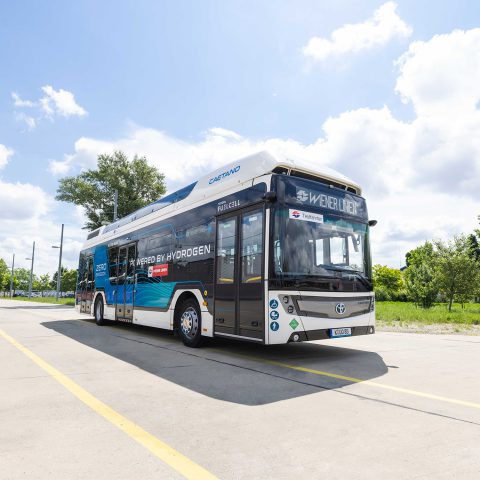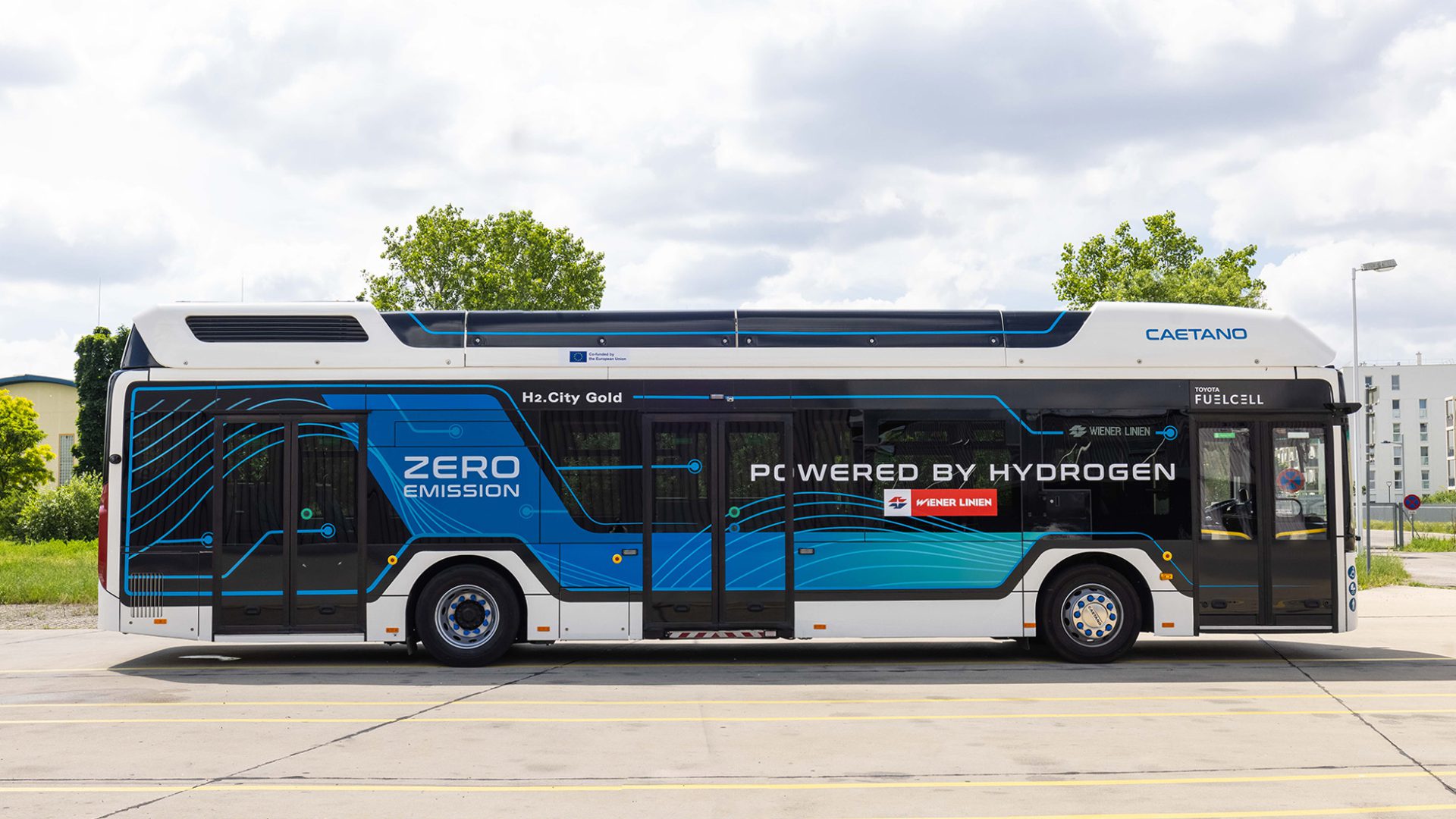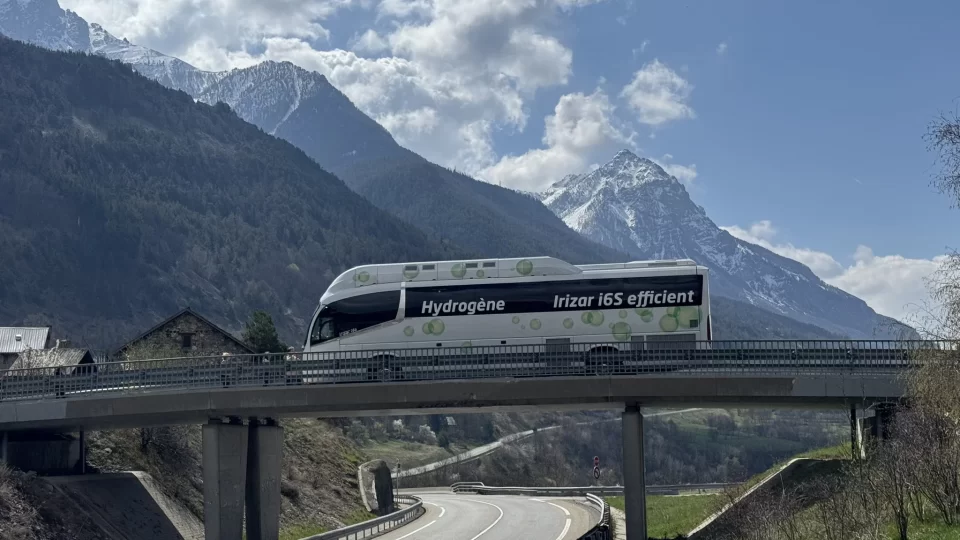CaetanoBus wins tender to provide 10 hydrogen buses in Vienna
Wiener Linien is set to introduce ten hydrogen-powered buses on Line 39A by the end of 2025. Following a European tender process, CaetanoBus, in collaboration with Toyota, emerged as the successful bidder to supply the H2.City Gold buses.

Wiener Linien is set to introduce ten hydrogen-powered buses on Line 39A by the end of 2025. Following a European tender process, CaetanoBus, in collaboration with Toyota, emerged as the successful bidder to supply the H2.City Gold buses.
With the inauguration of a new Center of Excellence for electromobility last week and the complete transition of two bus lines to electric buses, Wiener Linien is now turning its focus towards hydrogen-powered solutions to further its sustainability goals.
Wiener Linien turns 39A line to hydrogen
The H2.City Gold buses, each measuring 12 meters in length and equipped with Toyota’s fuel cell technology, will be refueled at Wien Energie and Wiener Netze’s hydrogen station located at the Leopoldau bus depot. Leveraging the existing hydrogen infrastructure, Wiener Linien aims to seamlessly integrate hydrogen buses into its operations, ensuring a smooth transition towards emission-free public transportation.

Wiener Linien will completely switch to hydrogen buses on line 39A between Heiligenstadt and Sievering in 2025. Due to gradients, short distances between stops and high passenger volumes, this is one of the most demanding lines in the city, which is why hydrogen buses are particularly suitable for these routes.
The operator points out that “Originally, the H2 buses were put out to tender together with the e-buses. After intensive tests with an H2 bus from the best bidder at the time, it turned out that this vehicle was not ideally suited for the challenging use in Vienna’s urban transport system. Wiener Linien therefore immediately launched a new tender for the purchase of the ten hydrogen buses. This has now been finalised and line 39A can be converted to H2 buses by the end of 2025″.
Vienna, a strategy aimed to hydrogen value chain
Peter Hanke, Vienna’s City Councillor for Public Transport, states: “In Vienna, a pioneer in climate action, the transition of our bus fleet to emission-free propulsion is progressing rapidly. While large electric buses are already operating in the southern part of the city, ten hydrogen buses will follow next year in the north. Together with the Ministry of Climate Protection and the EU, we are investing approximately €90 million in the purchase of electric and hydrogen buses and the development of infrastructure—a testament to successful European collaboration for a climate-friendly future.”
Monika Unterholzner, Deputy CEO of Wiener Stadtwerke, highlighted the strategic significance of the initiative, stating, “With the procurement of ten hydrogen buses, we are achieving another milestone in our hydrogen strategy. Our aim is to cover the entire value chain, from the production of green hydrogen to transport, refueling, and utilization—all within the Vienna Utilities Group.”
Wiener Linien Managing Director Gudrun Senk says: “In recent years, we have put various hydrogen buses on trial (including Solaris Urbino hydrogen, editor’s take), especially in the summer in extreme heat and therefore under difficult conditions. In contrast to electric buses, which have more range in summer than in winter, hot conditions are more challenging for H2 buses. Our ambition is high: we want to reduce emissions while maintaining the quality of the service. The Caetano city bus has proved very successful in our tests. In future, it will take our passengers through the city with zero emissions, quietly and cleanly.”







